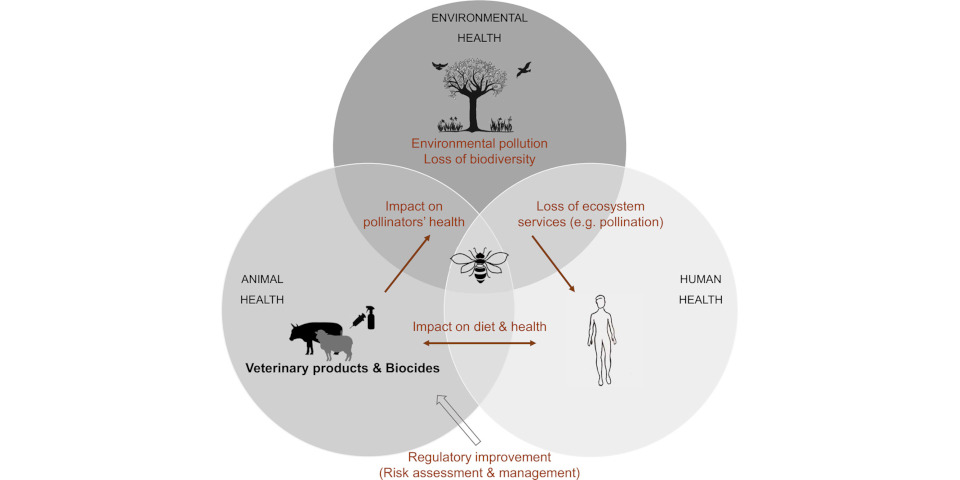Abstract
The One Health approach acknowledges that human health is firmly linked to animal and environmental health. It involves using animals such as bees and other pollinators as sentinels for environmental contamination or biological indicators. Beekeepers noticed intoxications of apiaries located in the vicinity of sheep and cattle farms, which led to the suspicion of bees’ intoxication by the products used for livestock: veterinary medicinal products (VMPs) and Biocides, confirmed by laboratory analysis. We review the legal context of VMPs and Biocidal products considering Europe as a case study, and identify shortcomings at the environmental level. We describe the possible ways these products could intoxicate bees in the vicinity of livestock farms. We also illustrate the way they may impact non-target species. The cases of ivermectin and abamectin as VMPs, deltamethrin and permethrin as Biocides are considered as case studies. We show bees can be exposed to new and unrecognized routes of exposure to these chemicals, and demonstrate that their application in livestock farming can affect the survival of pollinators, such as bees. We conclude that: (1) figures on the marketing/use of these chemicals should be harmonized, centralized and publicly available, (2) research should be devoted to clarifying how pollinators are exposed to VMPs and Biocides, (3) toxicity studies on bees should be carried out, and (4) pollinators should be considered as non-targeted species concerning the environmental risk assessment before their marketing authorization. We propose the term “Multi-use substances” for active ingredients with versatile use.










